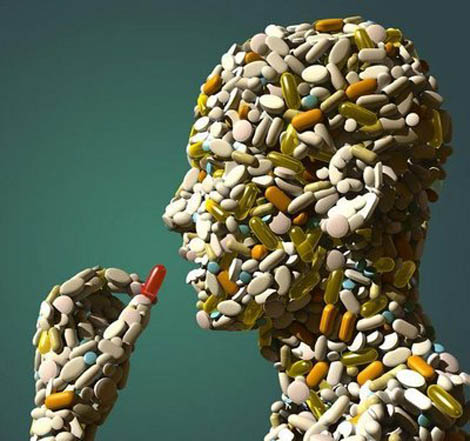 This is the third and last article by Professor Manuela Grazina, from the Faculty of Medicine and Center for Neuroscience and Cell Biology, University of Coimbra, on the implications of decoding the human genome:
This is the third and last article by Professor Manuela Grazina, from the Faculty of Medicine and Center for Neuroscience and Cell Biology, University of Coimbra, on the implications of decoding the human genome:
Knowledge of human nDNA sequences has provided an important foundation for understanding genetic diversity. On the other hand, with the decoding of the genomes of many other species (112 vertebrates in the last 10 years), which have since been released, we also got to know our phylogenetic tree.
It is undeniable the great impact that emerged in several scientific areas, from Human Evolution and Anthropology to Criminology. The importance for Medicine is highlighted, taking into account the now much greater possibility of identifying a greater number of causes for diseases, both in patients and in carriers, crucial in genetic counseling and in prenatal or preimplantation diagnosis, as well how to develop gene therapies or analyze genetic variations that modify the efficacy or toxicity of drugs, in such a way that it can even prevent death in some cases, taking into account the example of the case published in the New England Journal of Medicine (2004) , by Gasche et al., highlighting the importance of these studies.
Thus, Pharmacogenomics and Pharmacogenetics also made great advances, although the expectation of total prevention of toxicity or personalized dosage of drugs is still far from being reality, contrary to what one might think in 2003, according to the article published on the day October 24th of that year in Science Magazine, shortly after the full decoding of human DNA.
However, advances have been significant in this particular area and, in 2013, there are already 106 drugs on the market with pharmacogenetic information.
Still regarding the relationship of DNA information with the difference in response/therapeutic efficacy, the decoding of the human genome will allow, in the near future, to identify the reasons for the “placebo” and “nocebo” effects, related to “self-healing” or with the absence of it or self-induced illness, respectively.
 But the great discoveries will only be possible with the integration of studies from other areas, in addition to Genetics, such as Biochemistry, Imaging, Biology, Neurochemistry, among others.
But the great discoveries will only be possible with the integration of studies from other areas, in addition to Genetics, such as Biochemistry, Imaging, Biology, Neurochemistry, among others.
According to available data on the page of the National Human Research Institute, in the last 10 years it was possible to identify 4.847 mutations causing different diseases, this number having doubled after the sequencing of the entire human genome.
In the Laboratory that I am responsible for (CNC Genetic Biochemistry Laboratory, Faculty of Medicine, University of Coimbra; ISO 9001:2008 Quality Certificate (APCER) since July 2011), we have been dedicated for 18 years to the identification of genetic causes of rare diseases, located in both genomes, with particular interest in the bigenomic interaction, which has had great developments thanks to the total decoding of the two genomes and the technological advances that accompanied these great discoveries.
We recently carried out the pharmacogenetic characterization, within the scope of an International Consortium, of one of the genes that encodes a drug metabolizing enzyme, which predicts that there are half a million Portuguese people who have a faster-than-normal metabolism pattern, and who can be at risk if they take certain drugs, highlighting the importance of pharmacogenetic studies in populations.
 On the other hand, we must not forget that the formation of a human being does not only depend on its information in the DNA, but also on the way it is read, also taking into account the interactions with the physical and social environment, which influence the your translation.
On the other hand, we must not forget that the formation of a human being does not only depend on its information in the DNA, but also on the way it is read, also taking into account the interactions with the physical and social environment, which influence the your translation.
One of the great problems of today is to understand the meaning of an enormous amount of data that is produced daily all over the world, without the possibility of an effective analysis yet. It is urgent to find bioinformatics tools that allow analyzing such a large amount of data.
As mentioned recently by Prof. Eugénia Cunha, a specialist in Human Evolution, this was the decade of “quantity”, aiming for the next one to be dedicated to “quality”.
And we will certainly make our best contribution.
 Author: Manuela Grazina
Author: Manuela Grazina
Faculty of Medicine and Center for Neuroscience and Cell Biology, University of Coimbra
Science in the Regional Press – Ciência Viva
List of important publications in: http://www.ornl.gov/sci/techresources/Human_Genome/project/journals/journals.shtml


















Comments